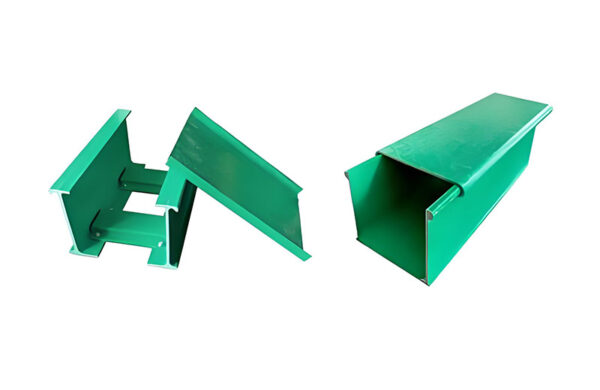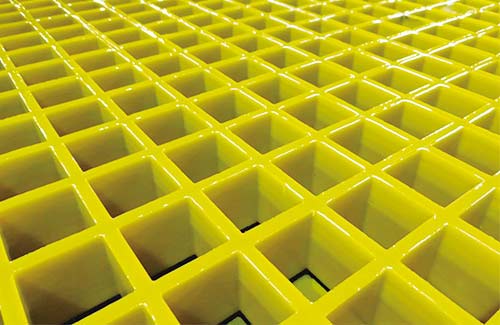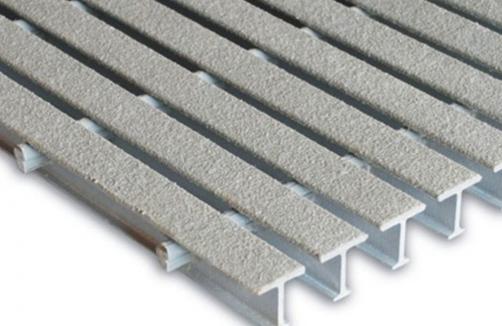FRP Tube for Chemical Processing Plants: Enhancing Industrial Efficiency and Safety
Chemical processing plants are the backbone of modern industries, producing essential materials for pharmaceuticals, agriculture, and manufacturing. However, these facilities face unique challenges, including corrosion, high temperatures, and hazardous substances. To address these issues, Fiber Reinforced Polymer (FRP) tubes have emerged as a superior alternative to traditional materials. But what exactly are FRP tubes, and how do they enhance efficiency and safety in chemical processing? Let’s explore this in detail.
What Are FRP Tubes, and Why Are They Suitable for Chemical Processing?

FRP tubes, also known as fiber-reinforced plastic pipes, are composite materials made from a combination of fibers (like carbon or glass) and a polymer matrix. This composition makes them highly resistant to corrosion, chemicals, and extreme temperatures—qualities essential for chemical processing environments.
Traditional metal pipes often degrade over time due to exposure to harsh chemicals, leading to leaks, downtime, and costly repairs. FRP tubes, however, maintain their structural integrity even in aggressive environments. Additionally, they are lighter than metal pipes, reducing installation difficulties and long-term maintenance costs.
Key Questions to Consider:
- How do FRP tubes compare to metal pipes in terms of durability?
- What chemical environments are FRP tubes best suited for?
- Do FRP tubes require special handling during installation?
Enhancing Industrial Efficiency with FRP Tubes
One of the primary benefits of FRP tubes is their ability to improve operational efficiency in chemical processing plants. Unlike metal pipes, which can rust or corrode, FRP tubes ensure a consistent flow of chemicals without blockages or leaks. This reliability minimizes production interruptions, saving companies time and money.
Moreover, FRP tubes have excellent thermal resistance, making them ideal for high-temperature applications. In industries where heat exchangers or chemical reactors are used, FRP tubes can withstand extreme conditions without deforming or losing strength. This durability translates to longer service life and reduced replacement frequency.
Sharing Insights:
Many chemical processing plants have switched to FRP tubes and noticed a significant improvement in efficiency. For example, a plant in South Korea reported a 30% reduction in maintenance costs after replacing traditional steel pipes with FRP tubes. The longevity and resistance to corrosion were key factors in this success.
Improving Safety in Chemical Processing Plants
Safety is paramount in chemical processing, where leaks or failures can lead to hazardous situations. FRP tubes contribute to a safer working environment by preventing chemical spills and containing hazardous substances effectively. Their non-conductive nature also reduces the risk of electrical hazards, making them safer for use in environments with electrical equipment.
Additionally, FRP tubes are lightweight, reducing the physical strain on workers during installation and maintenance. This feature, combined with their corrosion resistance, lowers the risk of accidents related to degraded pipes.
Key Questions to Address:
- How do FRP tubes prevent chemical leaks?
- Are FRP tubes safe for use in explosive environments?
- What certifications should chemical plants look for in FRP tubes?
The Future of Chemical Processing with FRP Tubes
As industries continue to seek sustainable and cost-effective solutions, FRP tubes are becoming increasingly popular. Their environmental benefits, such as recyclability and reduced waste, align with global sustainability goals. Furthermore, advancements in FRP technology are expanding their applications, making them suitable for a wider range of chemical processes.
Sharing Expert Tips:
When selecting FRP tubes for a chemical processing plant, consider the following:
– Material Compatibility: Ensure the FRP tubes are resistant to the specific chemicals used in your processes.
– Pressure Ratings: Choose tubes that can handle the operating pressures of your system.
– Installation Guidelines: Follow manufacturer recommendations for optimal performance and safety.
Conclusión
FRP tubes offer a compelling solution for chemical processing plants, enhancing both efficiency and safety. By addressing common challenges such as corrosion, high temperatures, and hazardous substances, FRP tubes provide a durable, reliable, and cost-effective alternative to traditional materials. As industries continue to evolve, FRP tubes are poised to play a critical role in shaping the future of chemical processing.
If you’re looking to upgrade your facility’s infrastructure, consider the long-term benefits of FRP tubes. They not only improve operational performance but also contribute to a safer and more sustainable industrial environment.







